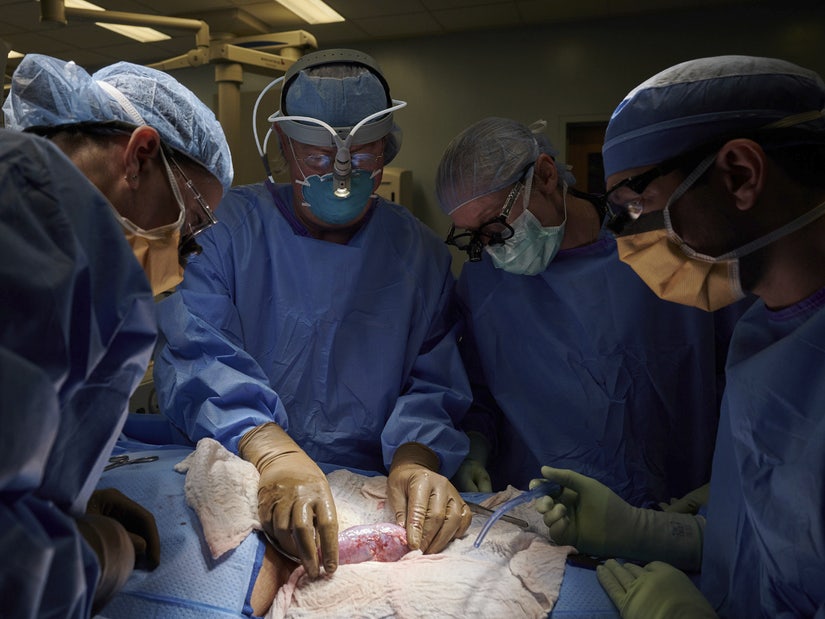 Joe Carrotta/NYU Langone Health via AP
Joe Carrotta/NYU Langone Health via AP
The medical advancement could pave the way for animal organs to be used in life-saving transplants.
Scientists have successfully transplanted a pig kidney into a human for the first time, which could pave the way for animal organs to be used in life-saving transplants.
On September 25, scientists at NYU Langone Health performed the two-hour procedure called a xenotransplantation.
Normally, the human body immediately rejects organs from other species; however this kidney had been gene-edited to eliminate a sugar that caused immediate organ rejection.
 Getty
Getty
Twin Donates Testicle to Brother Who Had None
View StoryThe kidney was transplanted to a brain dead patient with the consent of her family. For the duration of the 54-hour study, it was attached to large blood vessels and maintained outside the patient's body, so surgeons could observe and access it.
With no sign of rejection, the kidney performed its regular function of eliminating waste and producing urine.
In a statement, Dr. Robert Montgomery, who led the surgical team last month at NYU Langone Health, called the surgery a "transformative moment in organ transplantation."
"There was complete silence for a few minutes while we were sort of taking in what we were looking at, which was incredible," he told CBS Evening News. "It was a kidney that was immediately functioning."
According to the United Network for Organ Sharing, 107,000 people are presently waiting for organ transplants, with more than 90,000 waiting for a kidney, where wait times can be an average of three to five years.
 Instagram/TikTok
Instagram/TikTok
GoFundMe Offers $17K Refunds to Donors of Instagrammer Claiming She was 'Neurologically Damaged by Covid Vaccine' (Exclusive)
View StoryMontgomery waited so long for his own heart transplant that he eventually went with a donor with hepatitis C three years ago, per Reuters. "I was one of those people lying in an ICU waiting and not knowing whether an organ was going to come in time," he said.
The NYU Langone Health kidney procedure should open doors now for trials in critically-ill patients. It also gives impetus for biotech companies developing pig organs for transplant.
"This is an important step forward in realizing the promise of xenotransplantation, which will save thousands of lives each year in the not-too-distant future," said United Therapeutics CEO Martine Rothblatt in a statement.
Montgomery told CBS News that the NYU kidney procedure could be conducted to save a living human "in the next year or two."
"I think it will be something that eventually will be perfected to the point where it'll be an alternative to a human organ," he added. "I have hope."
 Fox13/Facebook
Fox13/Facebook



















